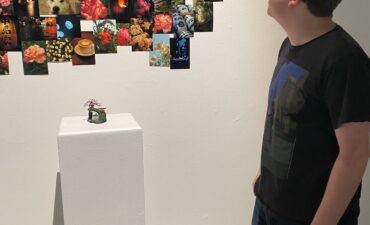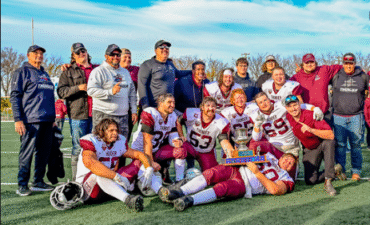A month ago, Tristen Durocher’s 44-day fast ended with the hope that it would spark change in the heart of Saskatchewan.
Now the Sask Party, who voted against suicide prevention legislation and prompted Durocher to start Walking With Our Angels, won a majority in Monday night’s provincial election. Many Indigenous people are discouraged.
“The Sask Party has shown to me that they just don’t care,” said Melanie Monique Rose, a Métis artist who attended a ceremony at Durocher’s camp on the legislative grounds in Regina.

“I think that it’s very telling, the fact that (Premier Scott) Moe couldn’t even come and meet Tristen on the road or come at any point, and instead just take him to court.”
In September the government took Durocher to court to remove the teepee he set up on the legislative grounds. The judge ruled Durocher could finish his protest because he was protected under the Charter of Rights and Freedoms. However, not long after that ruling, the judge stopped at Durocher’s camp, sparking talk of an appeal from the province. Two weeks ago the province confirmed they will not be appealing the court’s decision.
Rose said the system in Saskatchewan is broken, which is a leading cause in why people seem to care less about Indigenous issues. According to her, the system is inherently racist and it starts with education.
“I’m nearing 40 years old, and when I went to elementary and high school, we learned more about European wars than we learned about treaties or anything in our own province,” she said. “So in some way I can understand how people are so racist because the system really has been set up that way.”
But Rose said Durocher tried to break that narrative through Walking With Our Angels and his 44-day fast.
“Tristen was like, ‘I want to break your hearts. I want to break your hearts open,’ ” Rose said. “I guess not enough hearts got broken there.”
Jason Bird, the program coordinator of Indigenous Business & Public Administration at the First Nations University of Canada, said the Sask Party’s Pillars For Life plan doesn’t have enough substance to it, but the NDP needs to do more as well.
“My guess is that it would fall short as well,” Bird said, “because the problem doesn’t always seem to be the policy that’s being put forward by the government, it’s how it gets enacted through Sask health and the administrative department there.”
Bird said without a plan from the Saskatchewan Health Authority, it would be unlikely for the government to have the opportunity to enact their policies. One of the things Bird said needed to be focused on by the SHA is mental health services.
Throughout parts of Canada’s history, Indigenous children were taken away from their families and forced into residential schools. Here they were assimilated into Canadian culture and often abused. Bird said Indigenous people continue to live with the implications of residential schools, which affects their mental health.
“There’s dysfunction on that side that goes back to residential schools, and it’s kind of trickled down to today,” Bird said. “The problem is there, so why don’t they address the issues that came from residential schools and trickled down?”
According to Bird, suicide legislation was not talked about enough during the campaign. He said this was because it’s primarily an Indigenous issue, but one that should be taken seriously across the province.
“The fact that Tristen actually did that whole walk and the fast and the ceremonies, to me it shows that it’s a serious issue,” Bird said. “Someone took it serious and put their life on the line for it.
“To me that should have been talked about in a bigger way because clearly it’s an issue to Tristen and to the northern communities and to Indigenous communities in general.”
Rose agreed it was a serious issue, and now, she hopes to see a change in Saskatchewan’s dynamic so she can live in a province she’s proud of.
“Reconciliation is a fancy thing to say but let’s talk about real reconciliation, and by Moe taking Tristen to court that’s just, to me, not reconciliation,” she said.
“I want to be part of a province that wants to hear from the people and respects them.”















